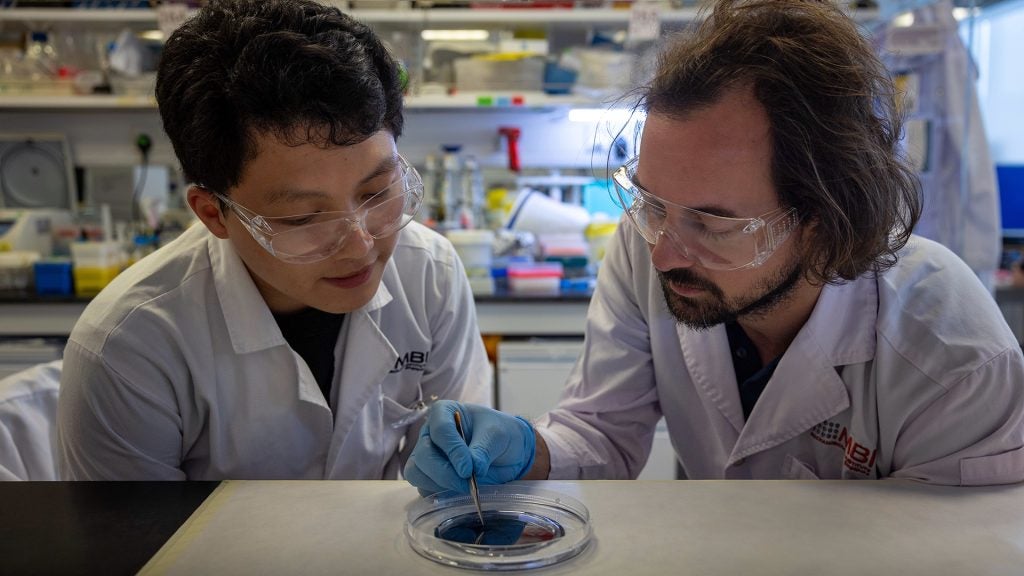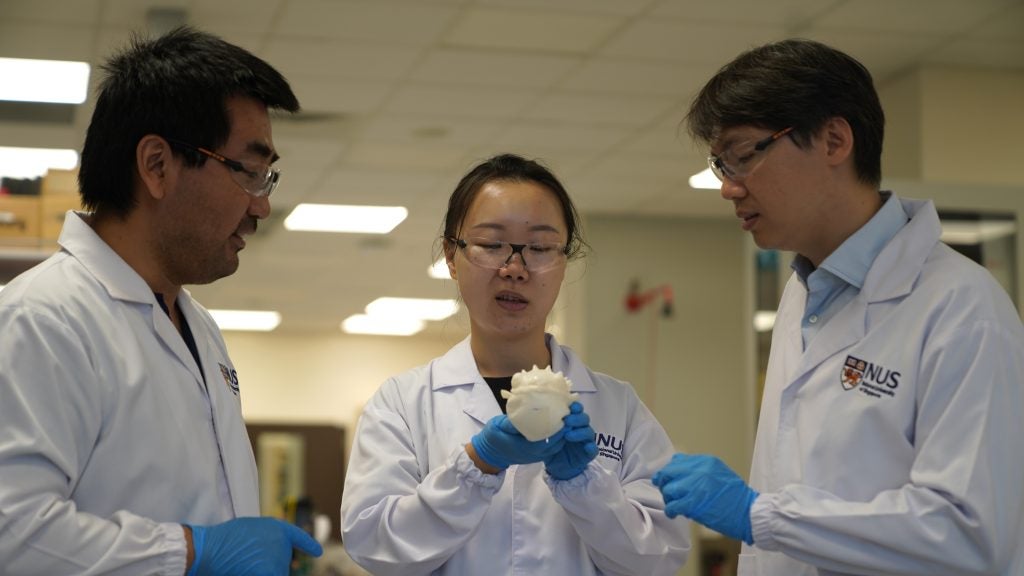
Four multidisciplinary research teams have been awarded funding under the inaugural NUS Robotics Seed Grant Programme, a new initiative by the College of Design and Engineering (CDE) that aims to advance robotics innovation through cross-disciplinary collaboration. The awarded projects include eight faculty from across CDE, as well as faculty from Computing, Medicine and Arts and Social Sciences.
Launched in early 2024 as part of the NUS Grand Challenge on Robotics Science and Engineering, the programme was developed following a series of workshops within the NUS community. These discussions identified five key research areas where robotics can have a transformative impact:
- Healthcare – Enhancing robotic capabilities in medical and assistive care
- Personalised medicine – Integrating robotics with tailored treatment approaches
- Workforce automation – Developing intelligent robotic systems for industry
- Personal assistance – Creating robots to support daily living
- Sustainable robotics – Designing eco-friendly robotic solutions
By funding projects in these domains, the programme fosters collaboration across faculties and encourages breakthroughs that push the boundaries of robotics research. Under the programme, the Advanced Robotics Centre (ARC) at CDE will provide dedicated space and resources to facilitate cooperation and ensure the research teams can work closely together.
Professor Cecilia Laschi (Mechanical Engineering), who is Director of the ARC and leading the Grand Challenge initiative, said: “The four awarded projects are excellent examples of the collaboration we wish to promote with the Robotics Seed Grant Call. By bringing together expertise from different fields, we can tackle more complex challenges at the frontiers of robotics research. The Advanced Robotics Centre provides a dedicated space for teams to work together, further nurturing a culture of collaboration at NUS.”
Each funded project consists of three principal investigators from at least two different departments, with one acting as project coordinator. The four projects supported under this first round are:
| Biodegradable biohybrid robot for aquatic environmental monitoring Project Coordinator: Assistant Professor Yu Jun Tan (Mechanical Engineering) |
This project aims to develop a new class of biodegradable, living robots to monitor aquatic environments. Three faculties are collaborating to integrate different technologies:
- Biohybrid actuation: Assistant Professor Yu Jun Tan is designing actuators made from living muscle tissues and biodegradable synthetic materials to enable movement.
- Mechanics of robotic swimmers: Assistant Professor Zhu Lai Lai (Mechanical Engineering) is modelling how the robot can swim effectively.
- Living sensors: Assistant Professor Liu Yuxin (Biomedical Engineering) is developing bio-integrated electronics that allow the robot to sense its surroundings in real-time.
By combining these efforts, the project seeks to create eco-friendly robotic solutions for environmental monitoring, reducing pollution and enhancing sustainability.
| Robot workforce: Intelligent wearable robots for workplace safety Project Coordinator: Associate Professor Yu Haoyong (Biomedical Engineering) |
This project focuses on developing an intelligent wearable robot to assist workers ascending and descending stairs in industrial settings. It brings together expertise in:
- Human biomechanics and human-machine interaction: Associate Professor Yu Haoyong (Biomedical Engineering) is working on the design of a wearable robot.
- Wearable sensors for perception: Associate Professor Vincent Lee (Electrical and Computer Engineering) is developing sensors that enable real-time understanding of the user and environment.
- AI-driven control systems: Assistant Professor Shao Lin (School of Computing) is working on a learning-based control system to ensure smooth, intelligent human-robot collaboration.
The project has wide-ranging applications in industries such as logistics, construction, as well as the military and civil defence.
| Robotic healthcare: Enhancing surgical training with AI and real-time feedback Project Coordinator: Associate Professor Chui Chee Kong (Mechanical Engineering) |
This project aims to revolutionise robotic surgery training by developing an AI-powered platform that provides real-time mentorship and adaptive feedback. The key research areas include:
- Sensorised tools and phantoms: Associate Professor Vincent Lee (Electrical and Computer Engineering) is creating smart training tools that collect real-time data on surgical performance.
- Mentor-trainee interaction analysis: Assistant Professor Joseph Ng (School of Medicine) is studying how expert mentorship improves learning outcomes.
- Intelligent training simulators: Associate Professor Chui Chee Kong is developing an AI-driven simulator that integrates all components to provide real-time guidance.
By continuously analysing performance data, this system aims to personalise surgical training, improving skill acquisition and ultimately benefiting patient outcomes.
| Impact of large-scale robot adoption on labour markets Project Coordinator: Assistant Professor Song Ran (Faculty of Arts and Social Sciences) |
This project explores how increasing robotic automation is reshaping workforce dynamics, with a focus on manufacturing and healthcare. The team is tackling this issue through:
- Economic impact analysis: Assistant Professor Song Ran is studying labour market trends and policy implications.
- AI-driven workforce simulations: Assistant Professor Liu Dianbo (Biomedical Engineering) is using machine learning to model optimal human-robot collaboration.
- Scalable data platforms: Assistant Professor Yao Lu (School of Computing) is developing a computational system to support large-scale economic and workforce modelling.
The findings will provide valuable policy insights to help governments and industries adapt workforce strategies for an increasingly automated future.
Shaping the future of robotics
Each of the four projects under the Seed Grant Programme will receive funding for three years, starting from mid-March 2025.
Commenting on the awarded projects, Prof Laschi said they marked a significant step toward positioning NUS at the forefront of robotics research that would deliver real-world impact across a range of industries.
“These projects reflect NUS’s commitment to pioneering robotics research that not only advances technology but also addresses societal challenges,” she said. “We look forward to seeing how these collaborations drive innovation and inspire future breakthroughs.”





